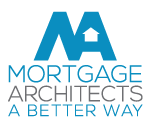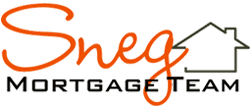The key to getting the best mortgage interest rate depends on the risk level lenders and banks determine that you carry. Banks lend money to make money, so they are very selective as to who they choose to lend to, and their goal is to have clients that they feel confident with.
Below are a few insights to help you get the best mortgage deal. Some of the following advice comes from our long-term exposure to the mortgage market and some are conclusions detailed in a recent study conducted by Bank of Canada*:
- Banks will usually start with offering you higher rates than they have – This is especially true if you are an existing client. New clients get much better deals. Skilled negotiators and well-informed clients will get the best, so come prepared or you will have to “enjoy” much lesser deals.
- New bank clients usually receive less of a discount than borrowers who are new clients in trust companies and credit unions. The bigger the bank is, the higher the rate and penalty it charges.
- Using a mortgage broker creates competition. The broker gets you multiple quotes that are strongly correlated with lower rates.
- Although it’s important to start with a great rate, it is even more important to create flexibilities in your mortgage contract that will allow you to switch lenders during the term and save in the future. Call us to learn about the most important flexibilities that you need to include in your mortgage.
- Usually the best fixed rates will be offered with restrictions. They will allow you to save money in the initial stage, but you won’t be able to improve your situation during the term, causing you to lose out on thousands of dollars in savings in the future.
- In the past 12 years in Canada, trends show that with the variable rate, homeowners were able to save more than with a fixed rate. The decision to take a fluctuating or variable rate has to be based on your personal comfort and financial style, needs, and future plans. We at Sneg Mortgage Team, will create a plan for you relying on your personal preferences and style. This plan has to take into consideration the nature of the term (open or closed), the length (3, 4, 5 years or more), rate type (variable or fixed), amortization, prepayment privileges, penalty options and much more.
- Good preparation is key. This will allow you to win a bidding war, purchase your house for a lower price (while offering a shorter time to remove subjects), and negotiate your mortgage with more lenders. An extensive preparation process includes good analysis of your needs, a review of supporting documents such as the credit report, income confirmation, employment letter, NOA (notice of assessment), and down payment verification. This preparation allows time to find the obstacles and correct them and also allows us enough time to negotiate the rate on your behalf.
- Lenders prefer larger mortgages and will give them priority over smaller ones. They put the same effort and have the same expenses (appraisals, underwriting, legal costs etc.) no matter the size of the mortgage. In the long run, they are getting paid for the final balance, so larger mortgages are more desirable on their end.
- Lenders prefer you healthy and wealthy. A better credit score gives you access to better mortgage choices. A borrower with a lower income and not much net worth faces higher rates. From a bank’s perspective, a larger down payment indicates more financial strength, and you’ll be rewarded with a lower interest rate, therefore they will give better deals to borrowers that come up with a bigger down payment. For the banks, it means these borrowers are less risky.
The Bottom Line
- Focusing on the rate is like winning the battle but losing the war. A great rate is only the starting point. By acting smart and incorporating more flexible mortgage features, you’ll be able to save thousands of dollars during the term.
- Instead of getting a mortgage pre-approval, which is a non-guaranteed mortgage declaration, get your mortgage broker to have a mortgage prequalification assessment done for you. In order to do so, the mortgage broker will need all your income documents and down payment statements upfront. On top of knowing the maximum amount you qualify for and having a rate hold for 90-120 days, you’ll now get comprehensive feedback about your documents and whatever else is needed. The result is a solid and guaranteed approval for you as a borrower, even before finding a property. This way you’ll avoid last minute surprises.

